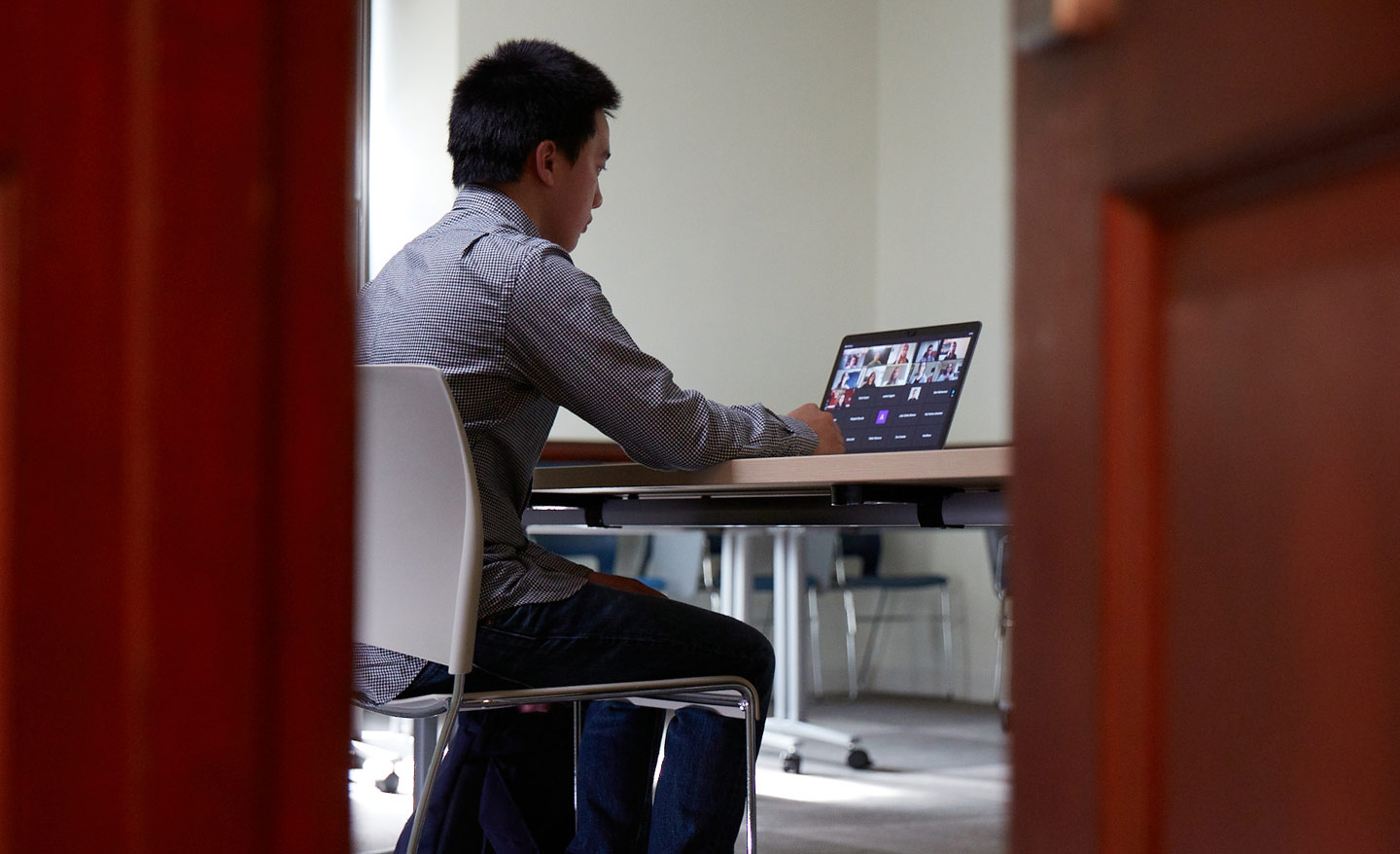All-College Symposium
This year's ACS, held virtually, highlighted students’ integrative learning.
Growing up on an island, Priyanka Ramchurn ’21 has always been fascinated by the ocean’s power. But can that power be harnessed for sustainable and eco-friendly, economic growth around the world?
This question has been driving Ramchurn throughout her undergraduate experience at Conn.
“Since the ocean is a transnational topic, I wanted to learn about the experience of other countries around the world and investigate the opportunities and challenges they are facing in transitioning to a sustainable, blue economy,” said Ramchurn, who defines the blue economy as the sustainable use of ocean resources for economic growth, improved livelihoods and jobs, while preserving the health of the ocean ecosystem.
An international relations and economics double major, finance
minor, and scholar in the Toor Cummings Center for International Studies and the Liberal Arts, Ramchurn presented the results of four years of exploration at the second annual All-College Symposium Nov. 6.
“I introduced the concept of blue financing and blue investments to my audience and made the case that transitioning to a sustainable blue economy requires sound ocean governance, research and innovation, and finance.”
Ramchurn was one of nearly 200 seniors in Conn’s Interdisciplinary Pathways and Centers for Interdisciplinary Scholarship to participate in the virtual day-long symposium, which highlighted students’ integrative learning through Connections, Conn’s reinvention of the liberal arts, and showcased how their coursework and experiences had informed their studies and learning over four years.
Through 10-minute talks, poster sessions, performances, screenings and exhibitions, students presented on a wide range of topics, from Latinx political participation to unequal access to STEM in the U.S. to how social determinants of health can help explain COVID-19 case patterns in Connecticut.
“The All-College Symposium is an extraordinary celebration of our seniors’ passionate engagement with questions that matter to them and to the larger world,” said Dean of the College Jefferson Singer. “Our whole community—faculty, students, staff, alumni and parents—learns so much from these dedicated students.”
Max Whisnant ’21, an aspiring politician, joined the Peace and Conflict Pathway to learn about developing solutions to entrenched political conflicts. A government and English double major, Whisnant interned for U.S. Representative Joe Kennedy’s U.S. Senate campaign in Massachusetts and developed an interest in political rhetoric.
“Even in a Democratic primary, for a safe Democrat seat, I was able to see how conflict arises. I watched how both campaigns’ rhetoric changed throughout the summer and became harsher and more biting,” Whisnant said.
The experience led him to his animating question, “How Does Presidential Rhetoric Affect the Political Consciousness of the American Public?” He is now completing an honors thesis on presidential rhetoric during catastrophic times. At the symposium, he was part of a group presentation along with the other seniors in the Peace and Conflict Pathway.
“The presentation fit with how tight-knit our group is. We enjoy learning from each other and bringing in knowledge from our various majors and minors, so we decided this was the best way for us to demonstrate our collective research,” he said.
For more ACS stories, visit www.conncoll.edu/connections/all-college-symposium
